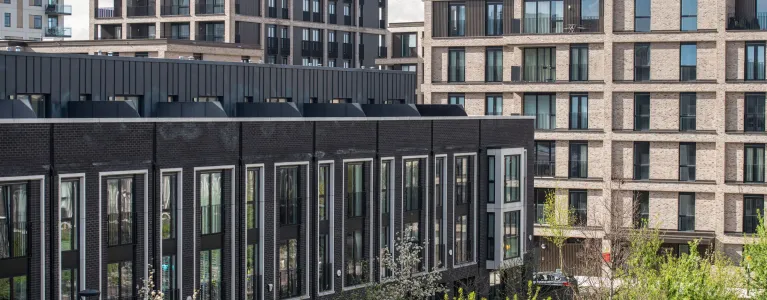
Tackling London’s Housing Crisis: Report shows how to unlock development in London
- The number of additional new homes completed each year in London has fallen from a high of 45,680 in 2019/20 to 32,160 in 2023/24.1
- In 2024, there were 336,366 Londoners on council waiting lists for social housing.2
- In 2023, London Councils reported that one in 50 Londoners were homeless and living in temporary accommodation, and boroughs were collectively spending around £60m per month on temporary accommodation costs.3
- Over 300,000 homes have been granted planning permission in London, but have not yet been built.4
London has a housing crisis, with housebuilding targets already being missed and more ambitious targets now put in place by the Government – aiming for almost 90,000 new homes to be built in the capital each year until 2030.
The London Assembly Planning and Regeneration Committee has today published its report – Unlocking Development in London – making recommendations to the Mayor on how to help deliver the high-quality and affordable homes that Londoners need.
Key recommendations in the report include:
- The Greater London Authority (GLA) should work with Government to bring forward a set of actions to support the Small and Medium Enterprise (SME) development sector in London meet their demand for better finance and larger sites. This should include options for how SME builders can access suitable sites for development on land owned by the GLA, and its functional bodies.
- The next London Plan should establish a clear policy hierarchy that prioritises housing as the key land use across appropriate undeveloped sites in London. This should be adopted as an overarching policy. It should be explicit that housing development, of a sustainable scale, appropriate character and with sufficient infrastructure, can tip the planning balance in favour of approving applications.
- The next London Plan should be simpler. As part of the Planning for London Programme, the GLA should work with Londoners to carry out a first principles in/out evaluation of each policy in the current London Plan. The GLA should consider how this could inform the London Plan, to provide greater clarity to local authorities on what is a ‘must’ and where and how they can be flexible.
- The GLA should maximise opportunities for affordable housing on GLA and Transport for London (TfL) brownfield land by offering enhanced incentives for brownfield development – such as expanding grants specifically to help offset remediation and infrastructure costs, while not compromising the health of existing and future residents on and around the site.
- The GLA should establish its own London version of the Homes England section 106 clearing service.
Chair of the London Assembly Planning and Regeneration Committee, Andrew Boff AM, said:
“Throughout our investigation, we heard from developers, experts and decision makers about the significant challenges that are facing developers – including the ability of SMEs to access finance, the difficulty of acquiring suitable land, and the complexity of the London Plan.
“But we also heard very clear ways to get London building more homes and unlock stalled developments: by simplifying the Mayor’s London Plan, giving SMEs the support they need to access finance and suitable sites, and maximising opportunities to create new affordable homes on brownfield land.
“London’s housing crisis is one of the biggest issues facing the capital today, leaving families without suitable homes and draining the budgets of London Boroughs through the millions of pounds they are forced to spend on temporary accommodation.
“The Mayor must now act on our recommendations to help deliver more of the homes that Londoners so desperately need.”
Follow us @LondonAssembly.
Notes to editors
- Rough sleeping annual snapshot: autumn 2024
- Live tables on rents, lettings and tenancies, accessed 17 Feb 2025
- Live tables on affordable housing supply, accessed 26 Feb 2025
- Sadiq Khan: New London Growth Plan to return London to pre-global financial crash rates of growth
- Read the report in full.
- Andrew Boff AM, Chair of the Planning and Regeneration Committee, is available for interview
- Find out more about the work of the Planning and Regeneration Committee.